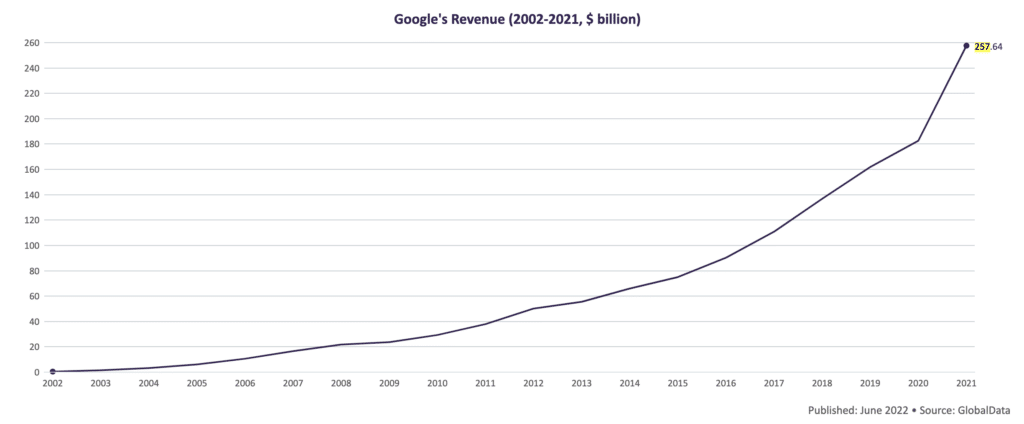What is surveillance capitalism, and can crypto protect your privacy?

What exactly is surveillance capitalism, and why should you be worried about your online footprint?
Table of Contents
In today’s digital age, your personal data is a commodity, a cornerstone of what has been termed by Harvard professor Shoshana Zuboff as “surveillance capitalism.”
What is Surveillance capitalism? It is a business model in which tech companies harvest personal data to predict and influence behavior, primarily for monetization through advertising.
But how does surveillance capitalism work? In this model, your searches, clicks, likes, and even the time you spend staring at your screen are valuable data points that are collected, analyzed, and sold.
For instance, companies like Facebook and Google offer services that many of us use daily. These platforms act as data collection hubs, capturing vast amounts of information about our habits and preferences.
This data is then used to build detailed profiles that can predict and even influence our decisions and behaviors, often without explicit consent from us.
This model has flourished in the digital age. For instance, in 2023, the digital advertising industry, which heavily relies on user data, was valued at over $602 billion globally and is projected to reach $965 billion by 2028.
What are the benefits of surveillance capitalism? For large companies, surveillance capitalism has clear advantages. It allows them to tailor user experiences precisely and make their services more efficient. This can make customers happier and boost company profits.
As the industry grows, the scale and depth of data collection expand, raising significant ethical and privacy concerns. According to a 2019 Pew Research Center survey, 81% of Americans feel they have little or no control over the data companies collect about them.
In search of solutions to these pressing concerns, blockchain emerges as a promising alternative.
Blockchain is designed to be decentralized and transparent. Transactions on a blockchain are encrypted and can be verified by any participant in the network without needing access to personal identity information.
This architecture not only enhances privacy but also limits the ability of any single entity to extract and monetize user data on a massive scale.
Let’s explore how surveillance capitalism works and how crypto and blockchain technology could mitigate the effects of it.
Surveillance capitalism explained
Surveillance capitalism has fundamentally transformed how companies interact with consumer data.
Google’s business model revolves around collecting detailed user data—from search history to YouTube preferences—and utilizing this information to sell targeted advertising spaces.
A 2018 Associated Press investigation revealed that Google tracks location data from smartphones even when users have explicitly turned off location history.
In 2021, advertising accounted for approximately $257.63 billion, or 81% of Alphabet’s (Google’s parent company) total revenue.

Similarly, Facebook leverages its deep integration into users’ social lives to tailor advertisements.
In 2021, Facebook generated nearly $114 billion in revenue from advertising, up from $84 billion the previous year, showcasing the high monetary value of personal data.
Surveillance capitalism examples
A particularly egregious example of surveillance capitalism was reported by The Markup in 2023, which found that a tracking tool called the Meta Pixel had been installed on many of America’s top hospital websites.
This tool collected sensitive health information—including details about medical conditions, prescriptions, and doctor’s appointments—and sent it to Facebook.
On 33 of the top 100 hospitals tested, every click on a “schedule an appointment” button sent Facebook a packet of data linked to the user’s IP address, effectively handing over confidential health information without patient consent.
The Markup’s real-time web privacy inspector, Blacklight, revealed that over 30% of popular websites contain encoded Facebook pixels. During a 2018 congressional inquiry, Facebook disclosed that its pixels have been installed on more than two million websites.
Another infamous example of surveillance capitalism’s risks is the Cambridge Analytica scandal. Investigations found that Facebook allowed the political consulting firm to harvest the data of millions of Facebook users without their consent, which was then used to influence voter behavior in the 2016 U.S. presidential election.
Other firms, like Amazon and Apple, also engage in forms of surveillance capitalism.
Amazon uses customer data not just to sell products more effectively but also to control marketplaces and undercut competitors, a practice scrutinized in a 2021 report by the U.S. House Judiciary Committee.
Apple, despite its privacy-centric marketing, collects large amounts of user data through Siri and iCloud, which are used to enhance user profiling for targeted advertising within its ecosystem.
The implications of surveillance capitalism extend beyond just targeted advertising.
This practice raises looming privacy concerns, as individuals often do not fully understand the extent to which their data is collected, stored, and utilized.
Moreover, the aggregation and analysis of personal data have broader societal effects, influencing everything from creditworthiness assessments to job eligibility decisions without transparent oversight or the opportunity for individuals to contest inaccuracies.
The monetization of private data under surveillance capitalism not only compromises individual privacy but also poses ethical questions about the balance of power between consumers and corporations.
It challenges the very notion of consent, as users must often choose between using essential services and protecting their personal information.
Then, what’s the solution?
Can crypto really help avoid surveillance?
Crypto, by design, offers a novel approach to data privacy that is fundamentally different from traditional financial systems.
Built on blockchain, transactions in the crypto space do not inherently require personal information such as names or physical addresses, enhancing user anonymity and privacy.
Bitcoin (BTC) and similar cryptos use public key cryptography to safeguard user identities. Each user has a public address that appears on the blockchain while their true identity remains concealed.
This method hampers the ability of companies to build comprehensive profiles of individual spending habits—a common practice under surveillance capitalism.
According to a 2021 research paper, blockchain ensures that personal data cannot be commoditized by third parties without user consent—a major shift away from the current norms of surveillance capitalism.
Moreover, crypto also opens avenues for creating economic models that move away from advertising revenue and the exploitation of user data.
With blockchain, content creators can receive payments directly from consumers through crypto, bypassing the need for ad-based revenue streams that rely on extensive data mining and personal profiling.
Crypto-based platforms like the Brave browser offer an innovative example. Brave uses its native cryptocurrency, Basic Attention Tokens (BAT), to reward users for viewing advertisements.
This opt-in approach not only respects user privacy but also disrupts the traditional ad model by directly compensating viewers rather than using their data as a bargaining chip.
According to a Brave user growth report, the browser had accumulated over 50 million active users by early 2021, which had grown to over 172 million by April 2023.
However, regulatory hurdles continue to impact the broader acceptance and use of crypto.
Different countries have varying stances on cryptocurrency regulation. Some, such as China, banned their use outright, and others, like El Salvador, integrated them into existing financial systems under guidelines.
These challenges not only complicate user access but also limit crypto’s growth potential as a mainstream tool for combating surveillance capitalism.
Real-world applications and future outlook
Current implementations
Blockchain and crypto are making strides in reducing surveillance capitalism. Here are a few ways they’re currently being applied:
- Decentralized Identities (DIDs): Microsoft’s ION project on the Bitcoin blockchain lets users create their own digital identities. This reduces the control of personal data by central authorities and decreases the chance of misuse.
- Secure healthcare data management: Companies like BurstIQ are using blockchain to protect healthcare data. This technology lets patients control who can see their medical records, keeping the information secure and private.
- Private transactions: Cryptocurrencies like Monero (XMR) and Zcash (ZEC) enhance user privacy by masking transaction details. Monero, for example, uses techniques that make transactions anonymous and hard to trace. It has attracted global legal scrutiny, offering a privacy level that traditional financial systems can’t.
- Blockchain and AI for data integrity: Integrating blockchain with artificial intelligence (AI) adds another layer to data security. AI analyzes blockchain data to detect fraud and optimize security, while the blockchain ensures that AI-generated data remains secure and unaltered.
Future potential
The future of blockchain and crypto in addressing surveillance capitalism includes some promising developments:
- Adoption of privacy coins: Increased use of privacy-focused cryptocurrencies could shift how personal data is handled, moving away from traditional data-exploitation models.
- Blockchain in consumer data rights: New blockchain projects may allow people to own and monetize their data. For instance, the Ocean Protocol provides a marketplace for secure, transparent data trading, ensuring users are compensated.
- Regulation and standardization: Clearer regulations could support the growth of crypto and blockchain, making them safer and more reliable for users.
- Integration with IoT: Blockchain’s role in the Internet of Things (IoT) is expanding. It could help secure vast amounts of data generated by IoT devices, from fitness trackers to smart home systems, ensuring this information is used ethically.
The future of crypto and surveillance
Expect greater integration of blockchain across various sectors, extending beyond financial transactions to include healthcare, digital identity verification, and even governance.
These implementations could diminish the ability of any single entity to exploit personal data as blockchain acts as a barrier against such practices.
Moreover, as public awareness of data privacy issues increases, driven by high-profile data breaches and surveillance scandals, consumer demand for solutions offering greater control and transparency could likely surge.
However, the path forward is not without obstacles. Regulatory frameworks need to evolve to better accommodate and nurture the growth of crypto while ensuring user protection.
Additionally, the scalability of blockchain technology must be addressed to meet the demands of global usage.
Still, with each step forward in blockchain and crypto innovation, we move closer to a fairer, more secure digital world.
















